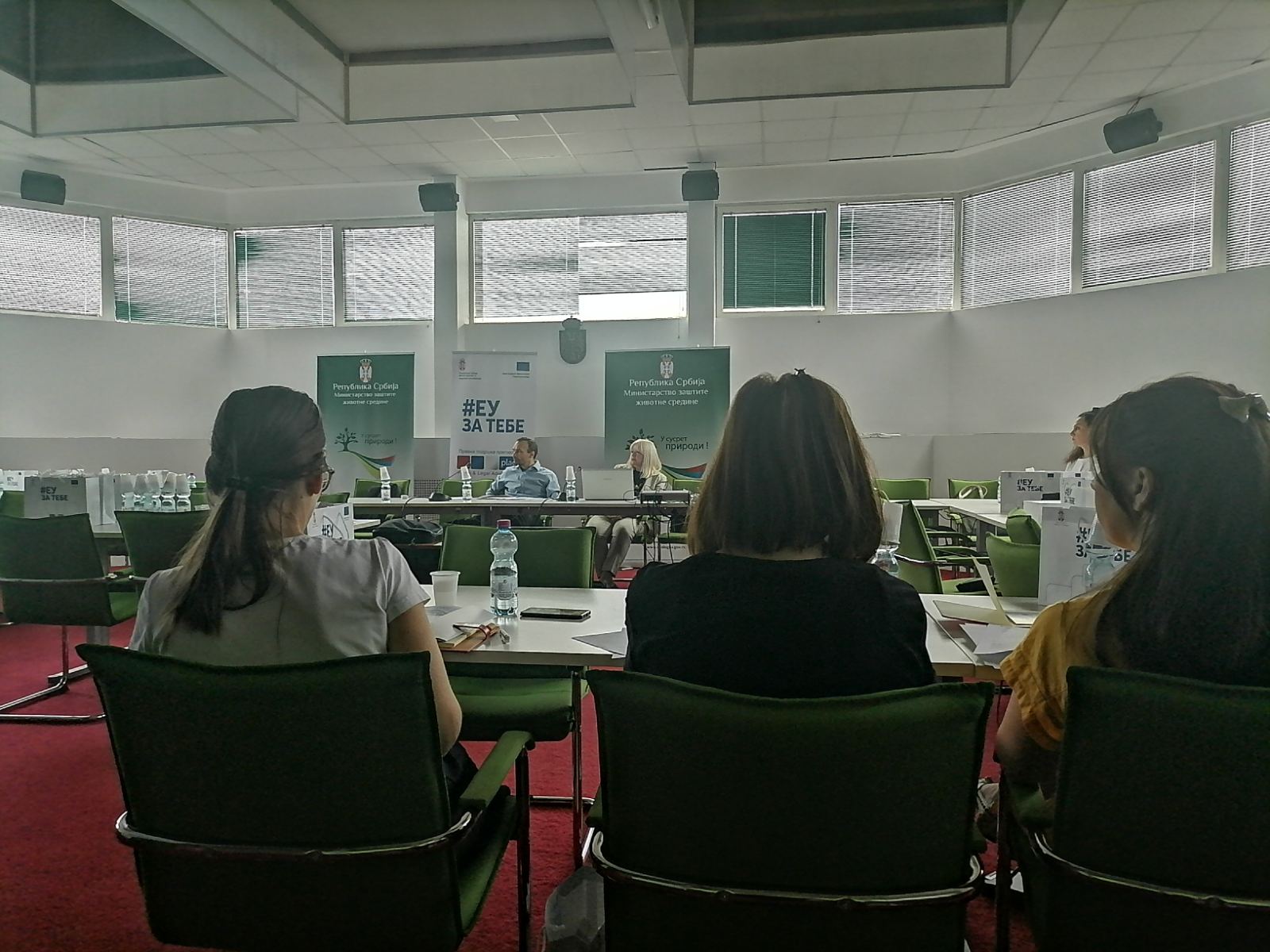The PLAC III project has provided support to the Ministry of Environmental Protection in harmonisation of national legislation with Union acquis in the field of end-of-waste status.
The end-of-waste status is regulated by the Waste Framework Directive 2008/98/EC and Regulation 66/2010 on the EU Ecolabel.
According to the progress country report of the European Commission, in the field of waste management, the Republic of Serbia has made progress in compliance with Union acquis, but the implementation of the law is at the very early stage. As stated in the latest version of the negotiating position for Chapter 27, in that area Serbia must redouble its efforts to reduce the waste, and full transposition will be achieved by the end of 2022 by revising the following legal acts: amendments to the Law on Waste Management; amendments to the Rulebook on technical requirements and other special criteria for certain types of waste that cease to be waste; amendments to the Rulebook on the content of the request for entry in the Register of by-products and the Register of waste that has ceased to be waste.
The workshop “End-of-waste status” was held on 22 June 22 2022. Project experts Gordana Petković and Vladica Čudić presented an analysis of the harmonisation of legislation with the Waste Framework Directive when it comes to ending waste status, as well as recommendations for further harmonisation with that directive and the Ecolabel Regulation.
As stated by Petković, the Directive prescribes that certain types of waste that have been subjected to recycling or other reuse operation cease to be waste if they meet the conditions for the substance or object to be used for certain purposes; that there is a market or demand for such substances or articles; that the substance or object meets the technical requirements for certain purposes and meets the conditions prescribed by law and standards applicable to those products and that the use of the substance or object will not lead to an overall harmful impact on the environment or human health. There are three approaches to ending waste status – types of waste prescribed by the EU through the Directive, types of waste prescribed by the member state and types of waste where it is decided on a case-by-case basis because they are not covered by EU or member state laws. The Directive states that specific criteria should be taken into account for aggregates, paper, glass, metal, rubber and textiles.
Petković presented examples of how different member states have regulated the area, as well as recommendations for harmonising the Serbian Law on Waste Management and the Law on Environmental Protection with the Directive. She presented the Draft amendment to the Law on Waste Management and the Draft Rulebook on technical requirements and other special criteria for cessation of waste status for certain types of waste not covered by EU Regulations and Guidelines, as well as the conformity assessment procedure. Expert Vladica Čudić presented an analysis of the existing administrative capacities as well as recommendations for improvement. She also presented recommendations for further development of policies and legislation of the Republic of Serbia through identified responsibilities arising from EU policy and in relation to the circular economy.
The workshop was attended by representatives of Ministry of Environmental Protection.
Featured image: https://environment.ec.europa.eu




